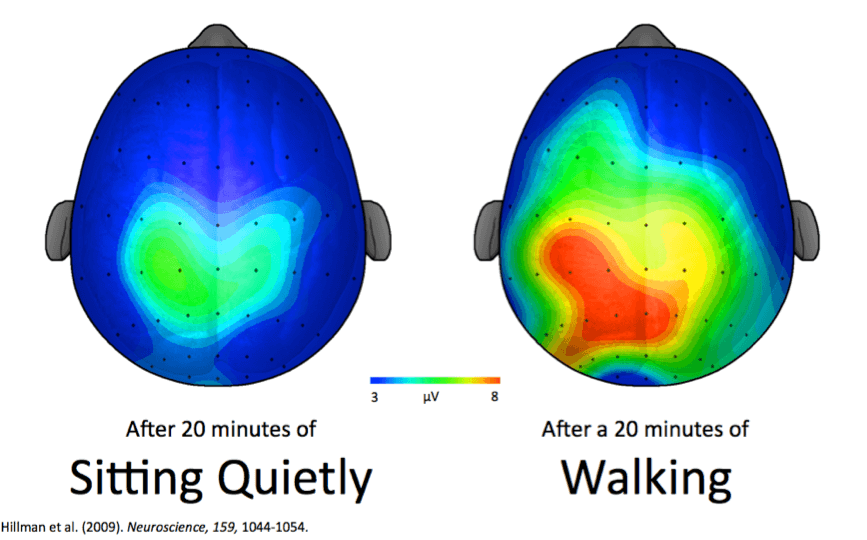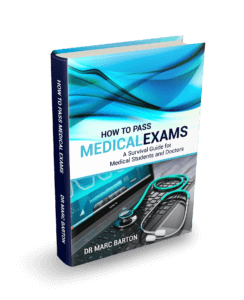“True enjoyment comes from activity of the mind and exercise of the body; the two are ever united.” Wilhelm von Humbodlt
The value of exercise
I have already mentioned how I have used exercise to help me with my exam preparation at several points throughout this book. Many people stop exercising before important exams as they perceive that they simply no longer have time for it.
I strongly believe that exercise is one of the most fundamentally important things that you can do whilst preparing for exams. Not only is exercise an excellent way to relieve stress and anxiety, it also has powerful neurophysiological effects that are advantageous for learning and memory.
Healthy body, healthy mind
Exercise increases cerebral blood flow and makes oxygen and vital nutrients more available to the brain. This increase in circulation also enhances energy production and waste removal. Exercise also causes the release of epinephrine from the adrenal glands, which has a stimulant effect and increases awareness and the ability to concentrate.
Numerous different studies have demonstrated a relationship between exercise and improved cognitive function. Aerobic exercise has been shown to promote neurogenesis and increase grey matter volume and increase neuronal activity. These changes have been associated with improved cognitive function and improved mood.
We know that the chronic stress of exams and studying increases cortisol levels in students. Having excess cortisol levels interferes with neurotransmitter function and has been shown to impair memory. Another valuable benefit of exercise is that, when done regularly, it increases the threshold for cortisol release. This makes the body more able to the cope with the effects of stress and less likely to suffer the detrimental effects of cortisol upon memory whilst studying.
Short bursts of moderate- to high-intensity exercise have been shown to induce a large increase in phenylacetic acid levels. Phenylacetic acid is the primary metabolite of phenylethylamine, the same stimulant that is present in dark chocolate. The euphoric effects that many people experience after exercising has been attributed to this and it also has the effect of increasing focus and concentration afterwards. For this reason, any studying done immediately after a short burst of high intensity exercise can be particularly productive.
Exercise has also been shown to offset some of the effects of ageing upon cognitive decline. One study that used MRI to measure brain volume in people over the age of 55 showed that individuals that had done the most exercise and were the fittest had the greatest brain volumes.
Consider exercising before your exam
There is also compelling evidence that a short burst of exercise before your exam can improve exam performance. Recent research by Dr. Charles Hillman at the University of Illinois showed that an acute bout of moderate exercise increased attention and academic performance in children.
Two groups of children were looked at: the first underwent a 20-minute period of aerobic exercise on a treadmill, and the second group sat and rested for 20 minutes. Both groups had event-related potentials (ERP) measured using electroncephalography (EEG). The children in the exercise group performed better in an academic achievement test and also showed increased ERP activity.

Image of ERP activity provided courtesy of Dr. Charles Hillman, University of Illinois
Of course it does not necessarily follow that these results will be the same in adults but it is certainly worth considering taking some exercise the morning before your exam, or at least walk to the exam instead of driving or catching the bus.
Key points to remember:
- Exercise is a great way of relieving exam stress and anxiety
- Studies have demonstrated a relationship between exercise and improved cognitive function
- Exercise helps to offset the effects of chronic stress induced cortisol release
- A short burst of exercise before your exam may improve your performance
Medical Exam Prep would like to thank Dr. Marc Barton for permission to reproduce this extract from his book ‘How to Pass Medical Exams: A Survival Guide for Medical Students and Doctors’
About Dr. Marc Barton
Dr. Marc Barton qualified from Imperial College School of Medicine in 2001. Since that time he has worked in a variety of different medical specialities. He worked as a GP partner from 2006 until 2008 and more recently as a higher specialist trainee in Emergency Medicine.
‘How to Pass Medical Exams’ is available for purchase here.






